Overview
The Patient and Caregiver Registry Portal is open for applications for medical cannabis cards. You can access the portal here.
In order for an individual to be eligible for a qualified patient registry ID card in Kentucky (including in-state qualified patient, minor qualified patient, and visiting qualified patient applicants), they must be diagnosed with one (1) of the following qualifying medical conditions:
- Any type or form of cancer;
- Chronic or severe pain;
- Epilepsy or other intractable seizure disorder;
- Multiple sclerosis, muscle spasms, or spasticity;
- Chronic nausea or cyclical vomiting syndrome; or
- Post-traumatic stress disorder.
The Program has also issued a Qualified Patient & Designated Caregiver Guide. This Guide will assist individuals interested in becoming cardholders in the Commonwealth of Kentucky with applying for a medical cannabis card. The Guide will walk applicants through the steps to register, including the required information and documents they will need to complete the card application process. You can find additional resources here.
Upcoming Events for Patients
The Office of Medical Cannabis is hosting a series of webinars for prospective medical cannabis cardholders in the Commonwealth. These webinars will take place on a monthly basis to provide information regarding the processes for becoming a registered qualified patient or designated caregiver, including how to obtain a written certification from an authorized medical cannabis practitioner and how to register for a medical cannabis card through the online Medical Cannabis Patient & Caregiver Registration Portal.
You can find all upcoming webinars and register for one below:
- Wednesday, February 18, 2026 | 12pm-1pm | Register Here
- Wednesday, March 18, 2026 | 12pm-1pm | Register Here
- Wednesday, April 22, 2026 | 12pm-1pm | Register Here
- Wednesday, May 20, 2026 | 12pm-1pm | Register Here
- Wednesday, June 24, 2026 | 12pm-1pm | Register Here
- Wednesday, July 22, 2026 | 12pm-1pm | Register Here
- Wednesday, August 19, 2026 | 12pm-1pm | Register Here
- Wednesday, September 16, 2026 | 12pm-1pm | Register Here
- Wednesday, October 21, 2026 | 12pm-1pm | Register Here
- Wednesday, November 18, 2026 | 12pm-1pm | Register Here
- Wednesday, December 16, 2026 | 12pm-1pm | Register Here
For more information on the details of the patient and caregiver regulations, please see the infographics and tables provided below.
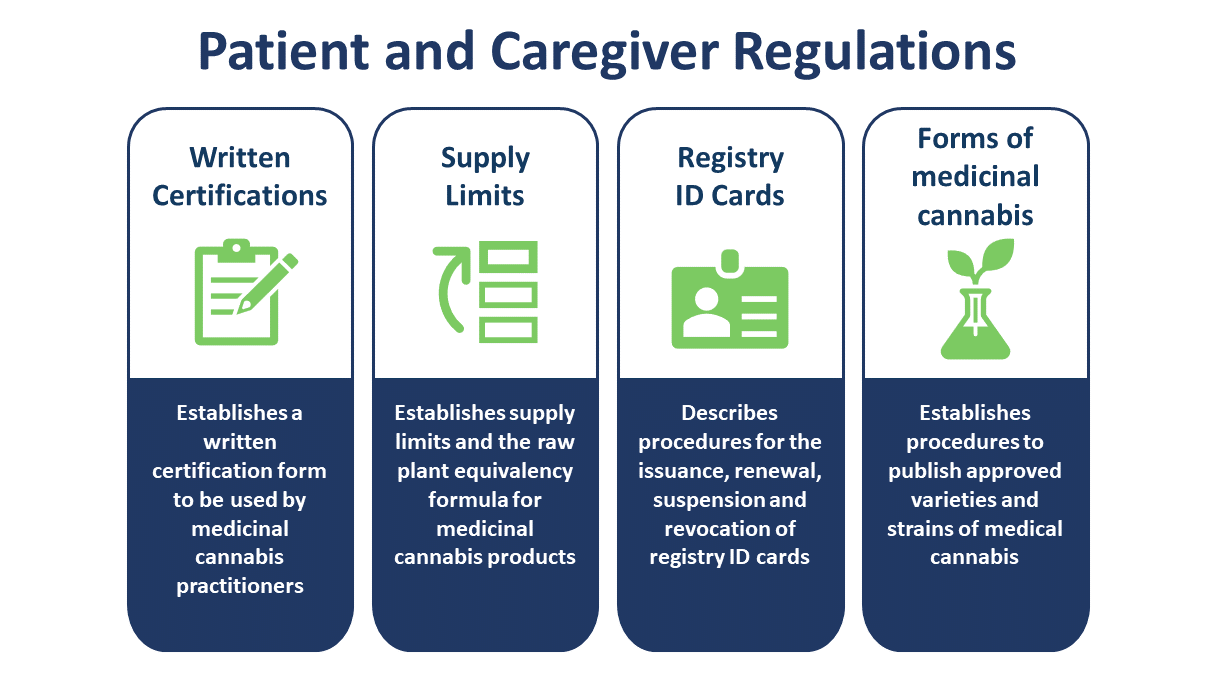
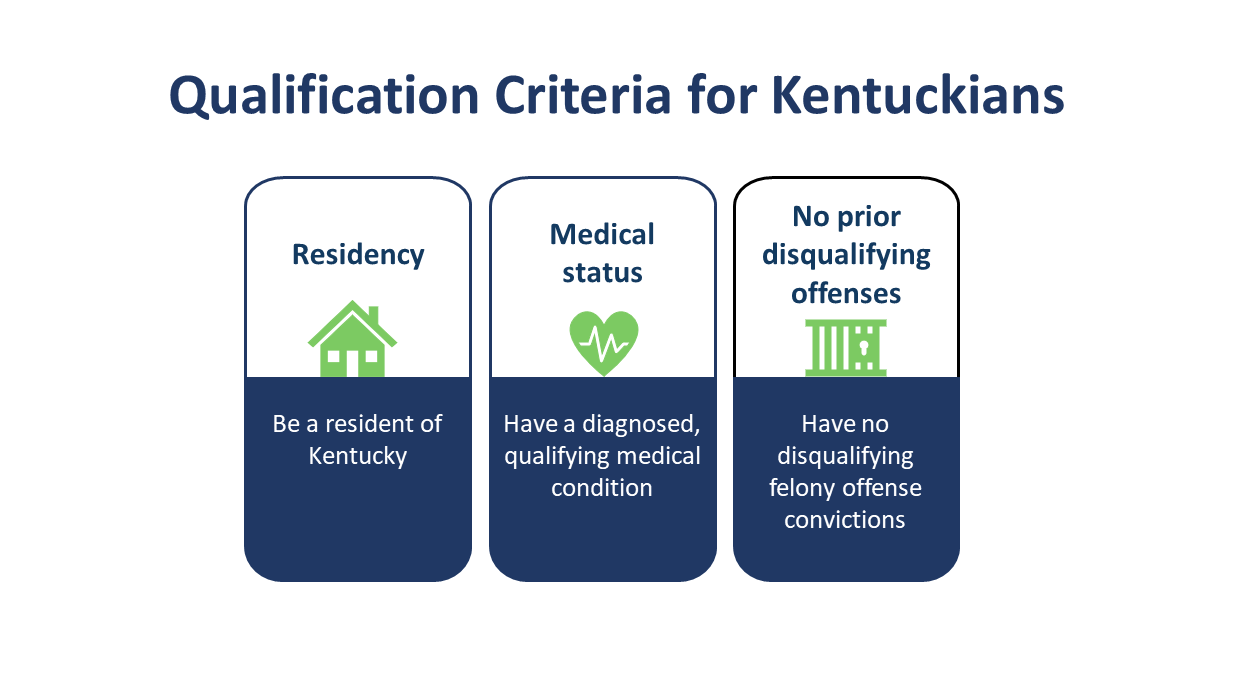
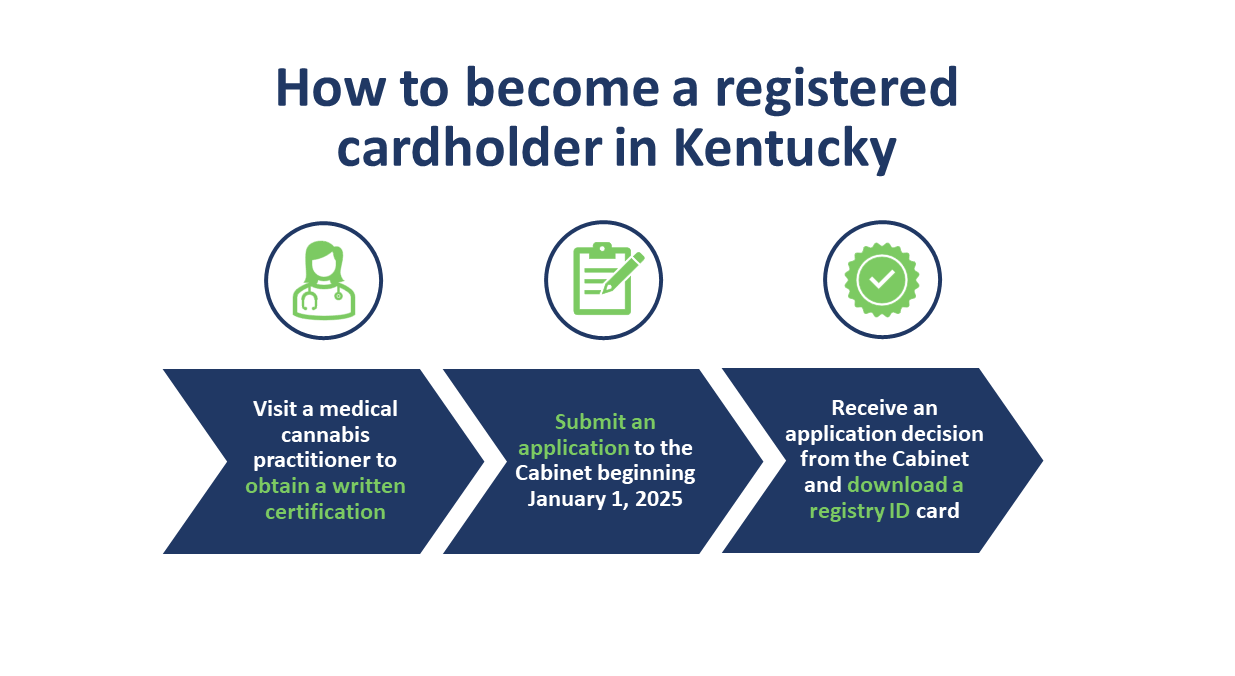
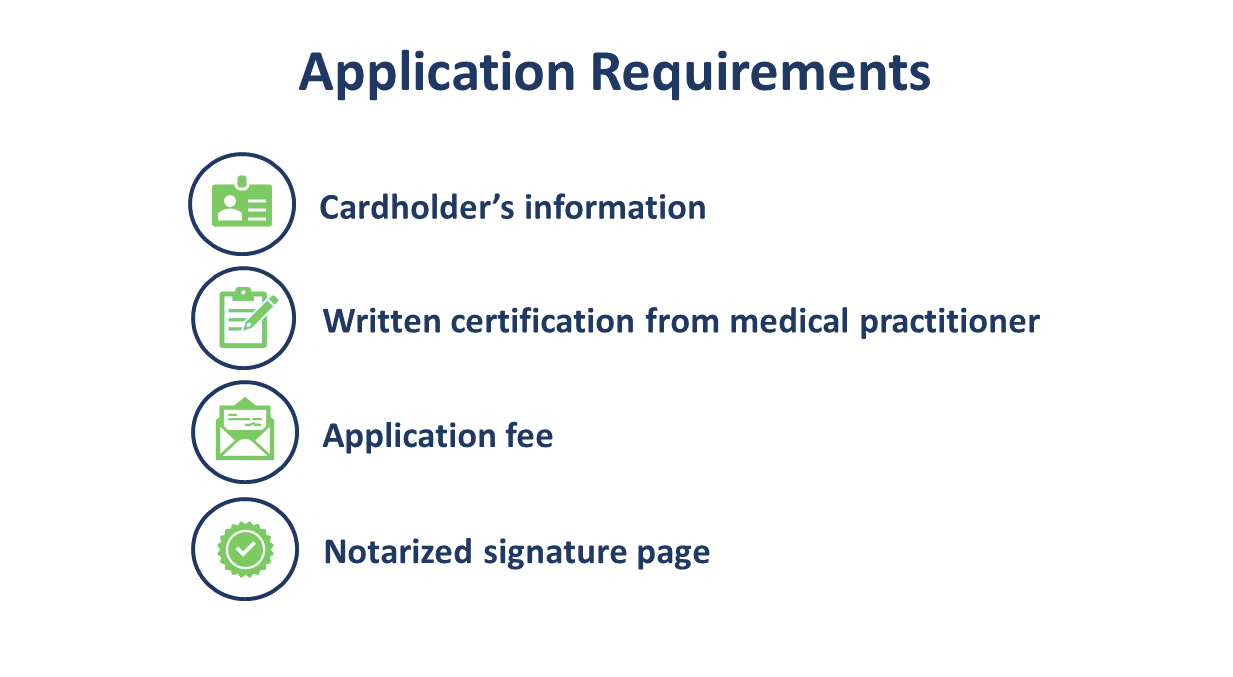
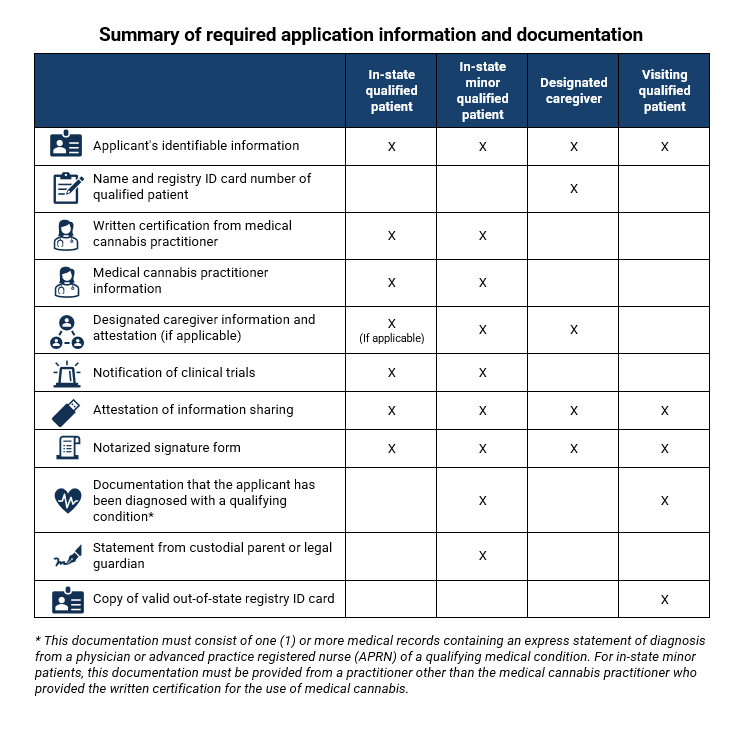
Application Fees and Sample Cards
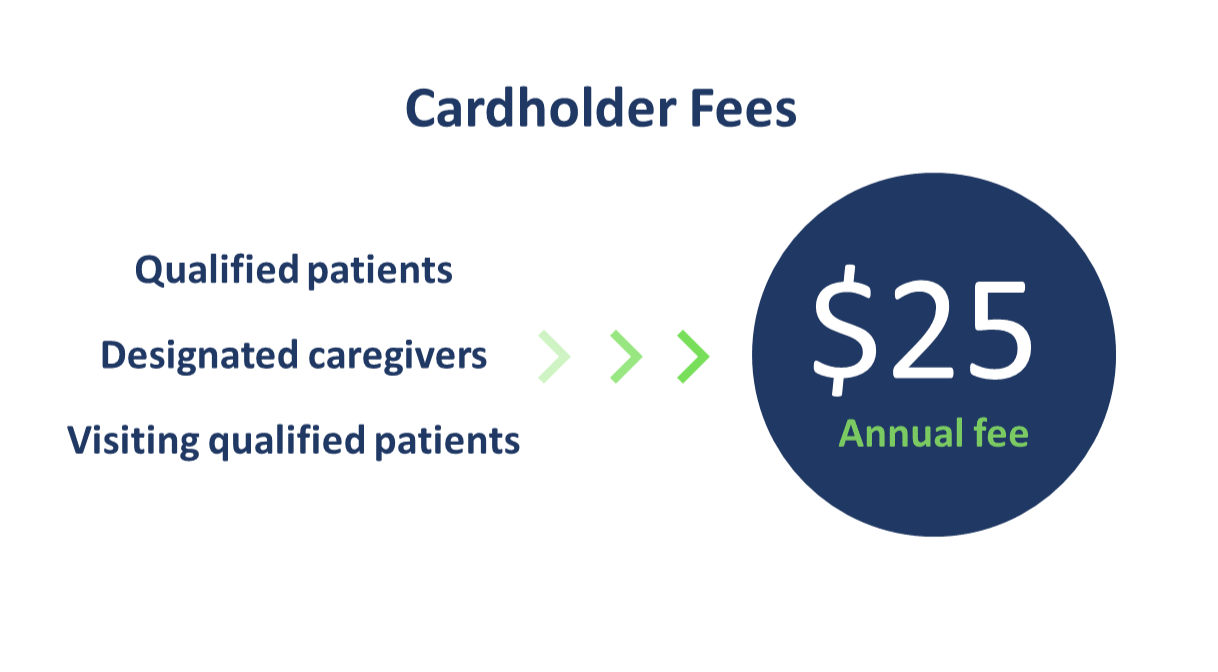
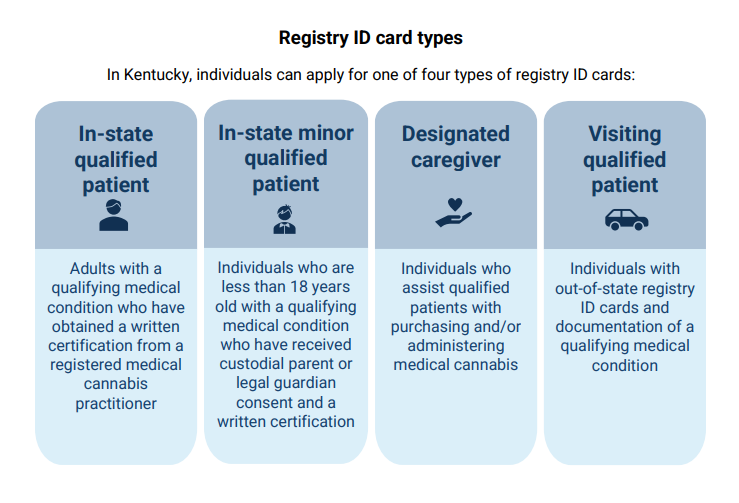
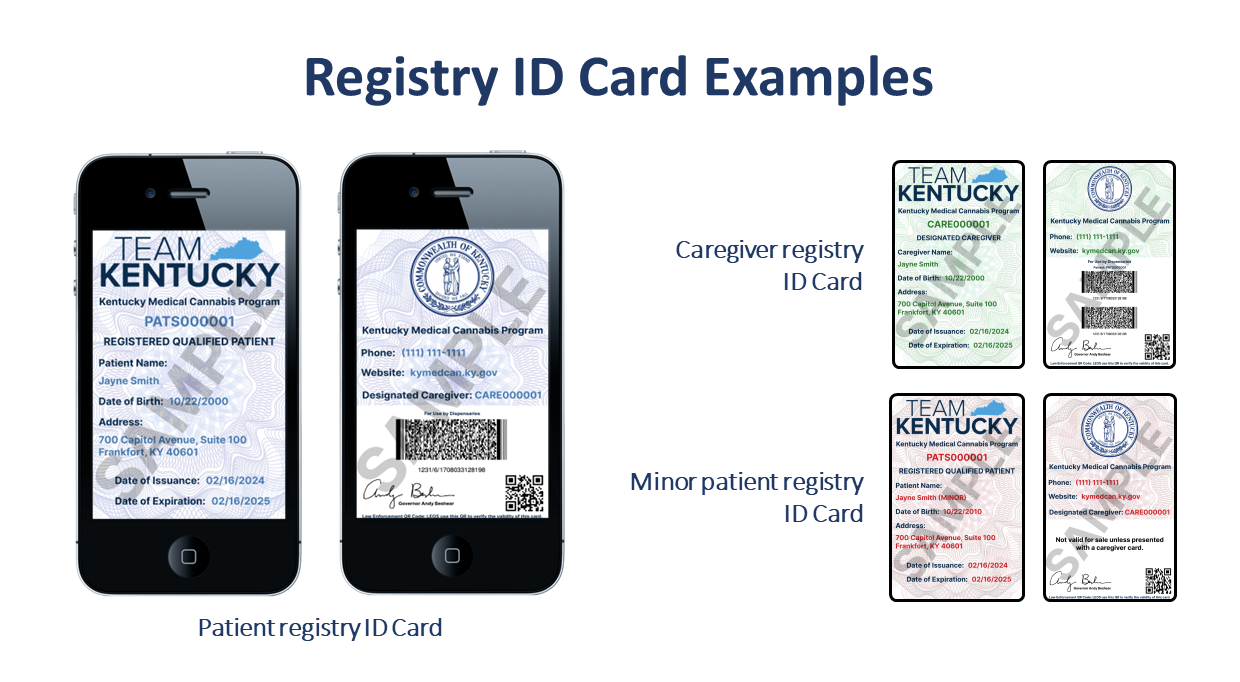
Supply Limits and Transportation
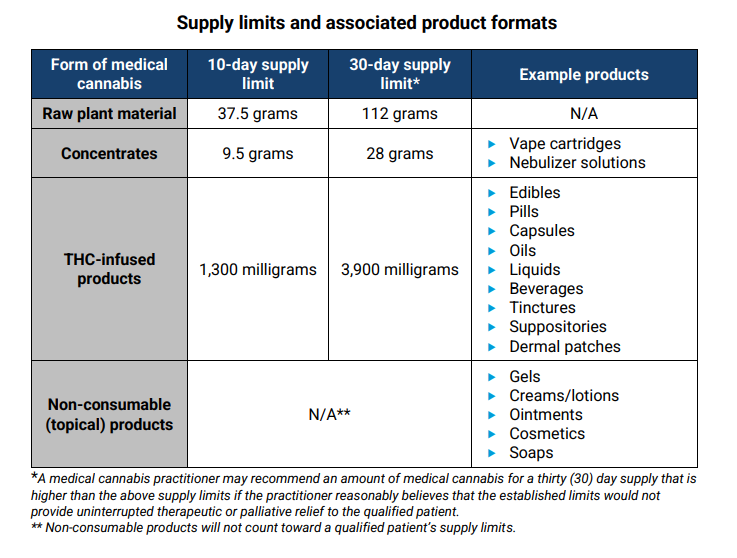
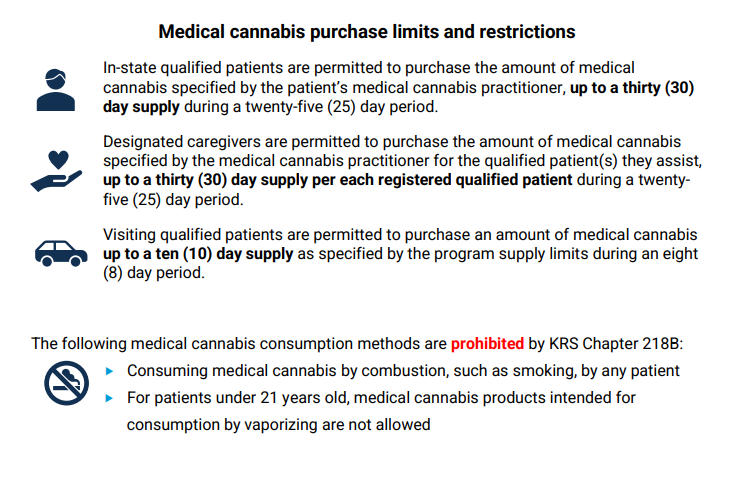
Packages for medical cannabis products cultivated, processed, produced, tested, and sold in the Commonwealth will have the
standardized symbol below indicating that the products contain THC and were made and sold by licensed cannabis businesses in Kentucky.

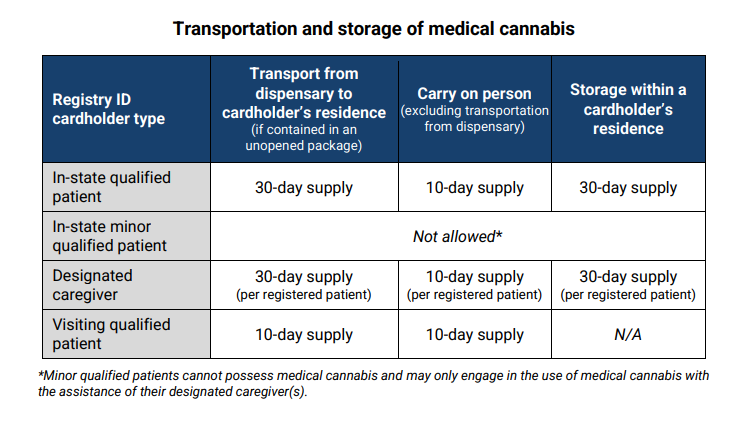
Review the resources below to learn more:
Qualified Patient & Designated Caregiver Guide
In-State Patient - Quick Reference Guide
Designated Caregiver - Quick Reference Guide
Minor Patient - Quick Reference Guide
Visiting Patient - Quick Reference Guide
For all patient and caregiver FAQs, please click here.